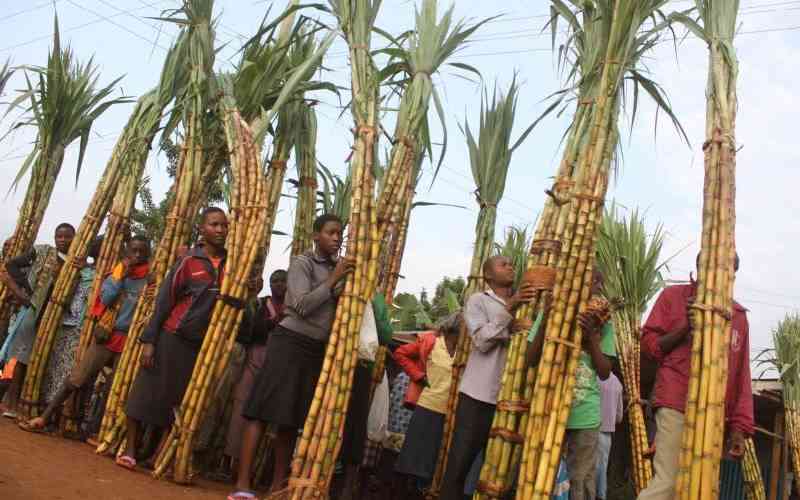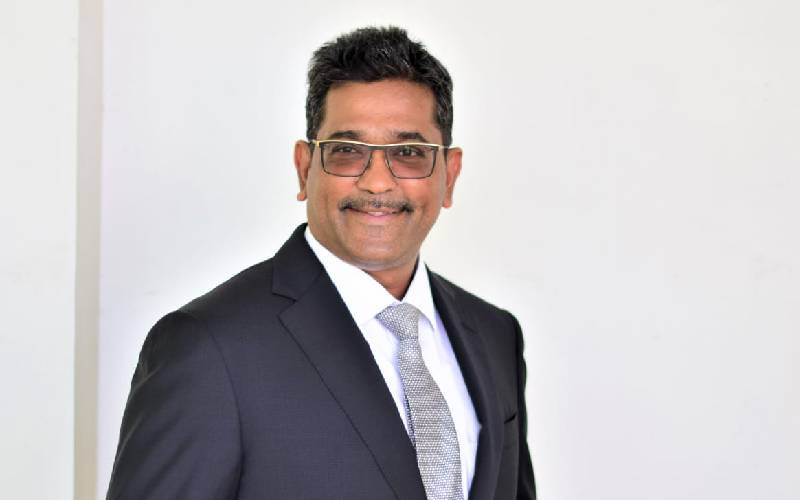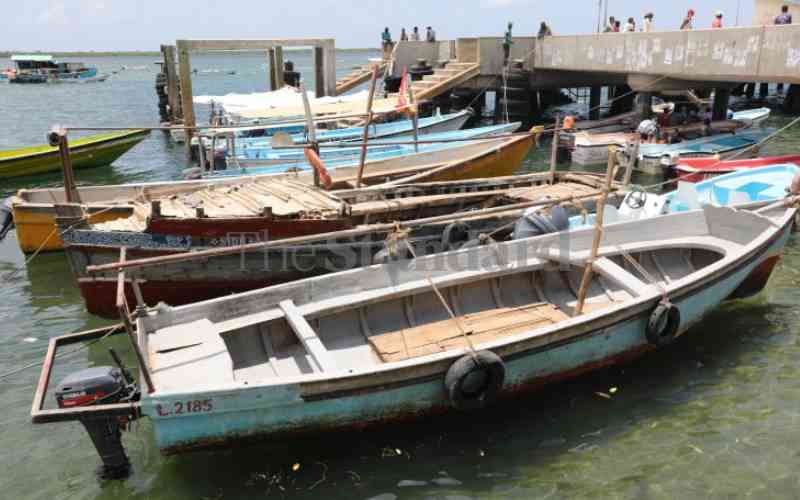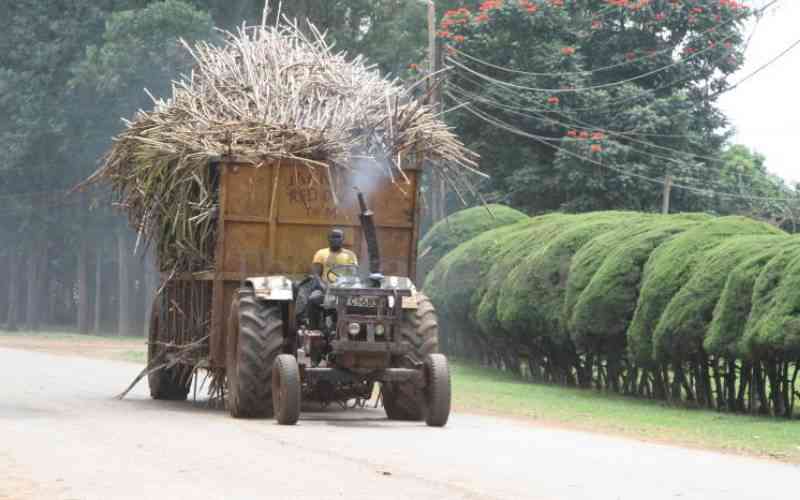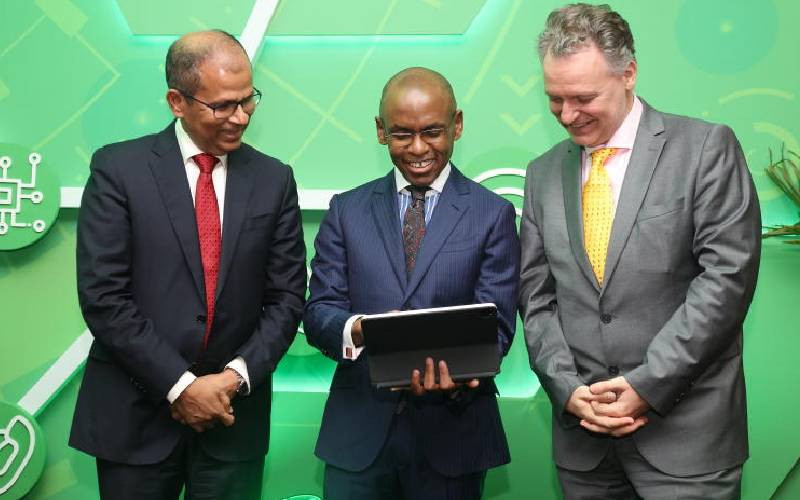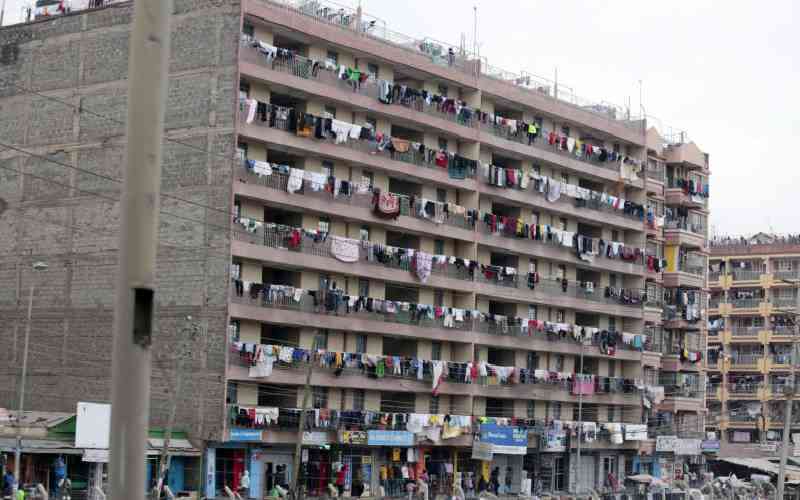By Ferdinand Mwongela
The sun stares down mercilessly at the hundreds of tents as if daring the residents to a never ending duel.
For the residents of Dadaab refugee camp, it is a duel they have got used to over time. |
The refugee woman does not have a say in matters concerning fertility.This makes family planning difficult. |
For new arrivals the blazing sun is nothing compared to their treacherous journey here. Relief is all they feel.
Every day, the numbers swell at the camp that was started about 19 years ago.
Apart from the new arrivals from neighbouring Somalia, there are newborns, arriving faster each day, threatening to overburden the very basic resources.
Indeed those born the year the camp was set up are hitting marriage age.
The life cycle goes unaltered due to little intake of family planning.
It is normal to encounter a woman in her early 30s with up to 12 children.
She may not know what they will have for supper, but her brood makes her proud — for the children are a proof of her fertility, something that is highly valued here.
Famine and drought
According to Bunmi Makinwa, the director of the United Nations Population Fund Africa Regional Office, "the problem the people face is bigger than just famine and drought".
"We are doing all we can on the short term but the world needs to think long-term," said Makinwa while on a tour of Dadaab recently.
The long-term solution is for the residents of this refugee camp to urgently take up family planning.
That way, it will be easier to plan and give their children a better life, for a smaller family is more manageable than a large one in terms of health provision and healthy meals, among other things.
Aid workers and service providers in the Dadaab camp are also doing their best to educate the
people under their care about family planning. |
Bunmi Makinwa meets some women and their children at the camp |
Christine Irambu, a National Council of Churches of Kenya reproductive health coordinator in the camp, says family planning education is hard to implement.
Apart from the religious and cultural challenges, especially for the majority Muslim population, some feel there is no need to plan their families.
Isn’t life too hard, too torturous to limit the number of children one should get?
What if you lose all? They argue.
Die seems cast
For the older generation, the die seems cast but there is some hope in the younger generation— they are more receptive to change.
"They are our change agents," says Irambu.
The only concern about the youth, however, is that they are idle and might take up getting many children as a way of keeping themselves busy.
They might also be pulled towards such antisocial behaviour as drug abuse.
This is mainly because they have nowhere to go after finishing school; there are six secondary schools in Dadaab.
Amid the effort to educate them on family planning, the caregivers have to contend with many issues; among them the questions of gender-based violence, hunger and health complications for the new arrivals.
Dr Emmanuel Ojwang, who works among the refugees in Dadaab, points out that most of the new arrivals are women and children.
In addition to the fighting in Somalia, famine is another factor driving these people over the border to Kenya, and to what many of them hope would be salvation.
The population at Ifo camp (within Dadaab) currently stands at over 140,000 with about 60,000 arrivals since January this year, and more keep coming daily.
Number of people
Family planning is a subject that has, with time, been on the minds of many people worldwide.
Reports indicate that Kenya’s population could hit 70 million by 2030, nearly double the current number of people.
Thus, there is an urgent need more than ever before to address the issue of large families and the need for Kenyans to embrace family planning in general.
Specifically, refugees must be empowered to plan their families.
The aid workers have started adopting new ways of taking family planning to the people.
They are now focusing on teaching them about child spacing and advocating for the health of the mother.
Dr Daniel Muchiri of Ifo Hospital in the camp says many refugees adore fertility; perhaps it is the only hope they have for continuity after the harsh life they lead in the camp.
This makes giving birth to go beyond the woman’s decision.
"At the end of the day, the woman has not much of a say, fertility is what is crucial," he says.
Irambu adds: "The woman will tell you that if she does not deliver, the husband will marry another wife."
This gives family planning education a new dimension; that the women know about the consequences of their actions but they lack the power and confidence to say no.
Because of the fixation with fertility, modern medicine practices such as C-section are also looked down upon because of the fear that they might reduce the number of children a woman is likely to get.
With time and more talking, some are beginning to buy into the idea of hospital deliveries. The growing population, however, means that the facilities are overstretched.
 The Standard Group Plc is a multi-media organization with investments in media
platforms spanning newspaper print operations, television, radio broadcasting,
digital and online services. The Standard Group is recognized as a leading
multi-media house in Kenya with a key influence in matters of national and
international interest.
The Standard Group Plc is a multi-media organization with investments in media
platforms spanning newspaper print operations, television, radio broadcasting,
digital and online services. The Standard Group is recognized as a leading
multi-media house in Kenya with a key influence in matters of national and
international interest.
 The Standard Group Plc is a multi-media organization with investments in media
platforms spanning newspaper print operations, television, radio broadcasting,
digital and online services. The Standard Group is recognized as a leading
multi-media house in Kenya with a key influence in matters of national and
international interest.
The Standard Group Plc is a multi-media organization with investments in media
platforms spanning newspaper print operations, television, radio broadcasting,
digital and online services. The Standard Group is recognized as a leading
multi-media house in Kenya with a key influence in matters of national and
international interest.




